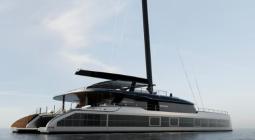Djibouti: Solar-powered desalination plant to tackle water scarcity
The East African country has made important investments in new water sources, including desalinisation capacity, a report notes
A solar-powered seawater desalination plant is being constructed in Dalaf, in the Obock region of Djibouti, marking a major step towards addressing chronic water shortages and boosting sustainable development in the area.
The facility, only the second of its kind in the country, is expected to supply safe drinking water to around 5,000 residents once completed within a year.
Valued at around $550,000, the project will also feature a 30-cubic-metre storage tank, public water taps and basins for livestock, catering to both community and agricultural needs.
Officials said the initiative is designed to deliver a permanent, eco-friendly solution to local water scarcity, one of the key challenges in the semi-arid region. The plant’s use of solar power will reduce operating costs and ensure year-round access to clean water for households and herders alike.
The new system is expected to ease the burden of fetching water and improve health, hygiene and livelihoods across the community.
Project to ease pressure on water stressed region
The project forms part of a wider series of interventions in water, education and health aimed at improving living standards and promoting local development in Obock.
Local officials hailed the desalination plant as a milestone for the region, saying it demonstrates the growing role of renewable technology in tackling water scarcity and supporting socio-economic stability in Djibouti.
Project developer Qatar Charity (QC) has so far laid the foundation stone for the solar-powered seawater desalination plant.
The organisation has previously implemented around 120 water projects in Djibouti, including surface and artesian wells and household water networks, benefiting more than 40,000 people.
Water challenges in Djibouti
A 2024 World Bank report – Djibouti Country Climate and Development Report (CCDR) – points out that the East African country is facing “important climate challenges, including extreme heat, increased floods and droughts, and rising sea levels which threaten its coastal economy.”
“Climate impacts undermine water security, increase the prevalence of climate sensitive diseases like malaria and strain livelihoods. Without investments in adaptation, Djibouti could face annual climate-related economic damages equivalent to 6 percent of its GDP by 2050.”
The report said that with renewable water resources as low as an estimated 185m3 per says per year, water access is strained, especially affecting rural livestock livelihoods, which may see a 24% revenue decline from heat stress.
But it highlights that Djibouti has made important investments in new water sources, including desalinisation capacity and a pipeline connection to deliver water from Ethiopia.
“Even with a growing population, urban water security is within reach with additional efforts to reduce network losses, use the pipeline connection at full capacity, and complete a planned expansion of desalinisation,” said the World Bank report.
Cover photo: Djibouti officials recently laid the foundation stone for the solar-powered seawater desalination plant. Source: Gulf Times/X



